Quick Response (QR) codes have evolved beyond their traditional use as a mere means of directing users to a website or sharing contact information.
They have become versatile tools with a myriad of creative applications across various industries.
Unlock the Power of QR Codes! with 14+ different types of QR codes!
Elevate your marketing game with TLinky’s QR Code Generator. Create dynamic, eye-catching QR codes in seconds.
The number of QR code scans globally has skyrocketed in recent years. Uniqode reports a 238% increase in QR code creation from 2021 to 2025, indicating a growing appetite for this technology.
Let’s explore some creative ways to use QR codes for businesses and individuals to enhance engagement, efficiency, and convenience.
Key Takeaways
- Versatility in Marketing: QR codes can revolutionize marketing strategies by enabling interactive posters, virtual tours, and loyalty programs, enhancing customer engagement and creating immersive experiences.
- Enhanced Customer Experience: Integrating QR codes into customer touchpoints, such as restaurant menus, event invitations, and feedback forms, can streamline processes, provide convenience, and improve overall satisfaction.
- Operational Efficiency: Businesses can leverage QR codes to improve internal processes, including inventory management, employee onboarding, and access control, leading to increased efficiency and productivity.
- Educational Innovation: In educational settings, QR codes can make learning more dynamic and interactive through tools like interactive learning materials, scavenger hunts, and homework assignments.
- Environmental and Security Benefits: QR codes contribute to environmental sustainability by reducing paper usage and can enhance security through applications in two-factor authentication, secure payments, and ID verification.
Traditional Uses of QR Codes
QR codes have long been employed for basic functions such as directing users to a website, providing contact details, or accessing promotional content. These traditional uses include:
Product Packaging
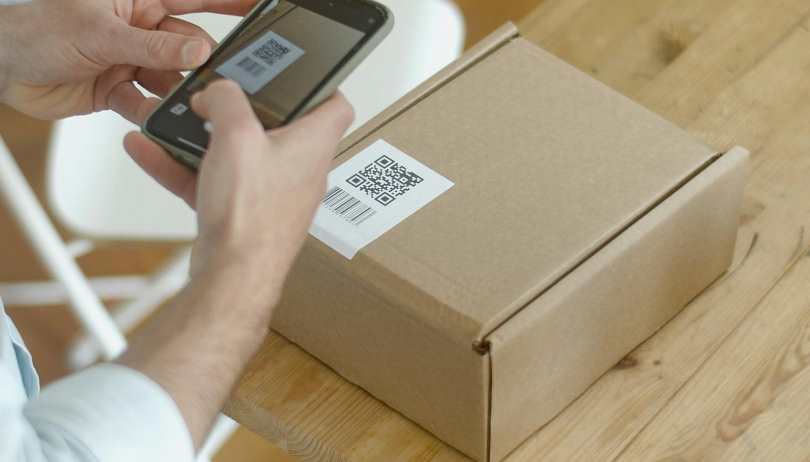
QR codes on product packaging can link customers to instructional videos, user manuals, or additional product information, enhancing their overall experience.
Marketing Materials
Incorporating QR codes into marketing materials like posters, flyers, and brochures enables businesses to provide instant access to special offers, discounts, or product demonstrations.
Business Cards
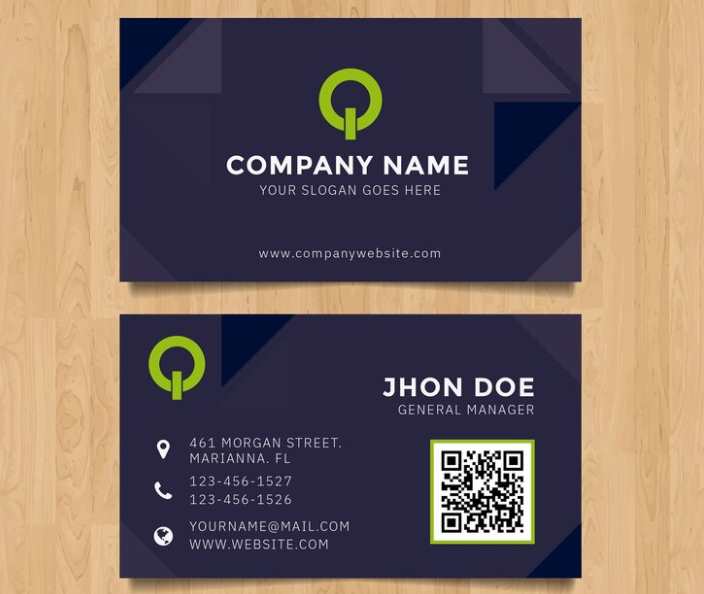
Including a QR code on business cards simplifies the process of exchanging contact information and allows recipients to quickly connect with the sender’s website or social media profiles.
Creative Ways to Use QR Codes in Marketing
Beyond the conventional approaches, QR codes offer numerous creative possibilities in marketing strategies:
Virtual Tours
Real estate agents, tourist attractions, and museums can use QR codes to offer virtual tours, allowing potential visitors to explore properties or exhibits remotely.
Interactive Posters
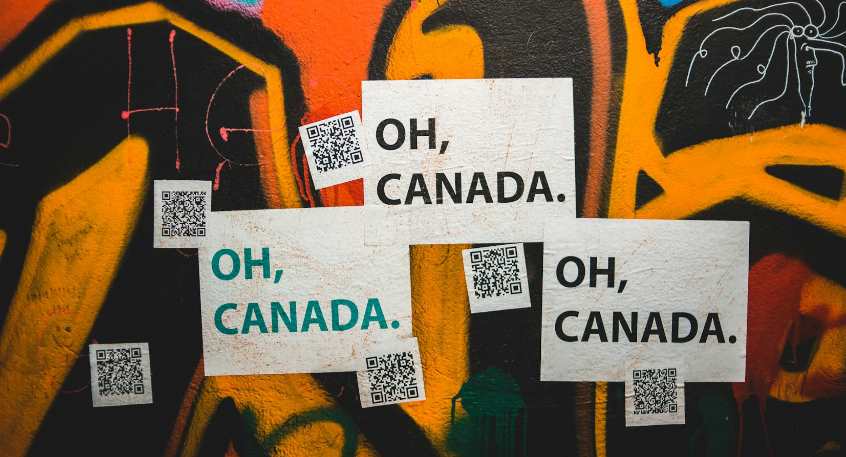
Interactive posters equipped with QR codes can engage viewers by providing access to exclusive content, contests, or interactive experiences.
Loyalty Programs
Businesses can implement QR code-based loyalty programs where customers scan codes to earn rewards, encouraging repeat purchases and fostering customer loyalty.
Enhancing Customer Experience
QR codes can significantly enhance the customer experience across various touchpoints:
Restaurant Menus
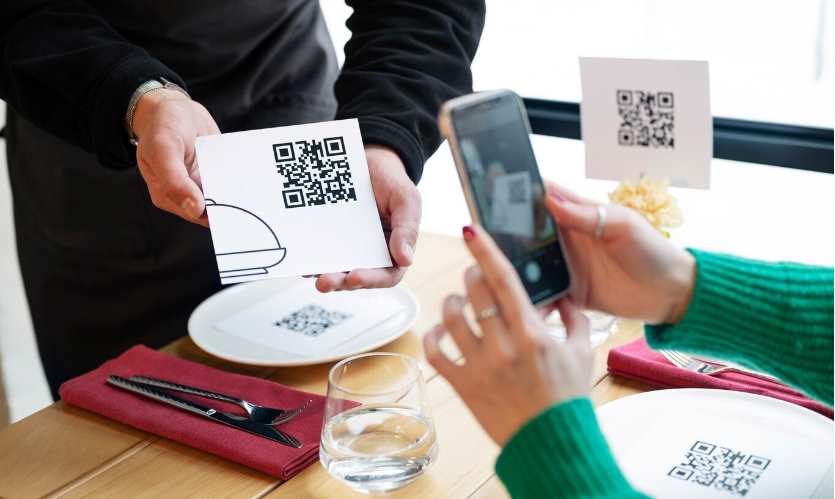
In restaurants, QR codes on tables or menus can provide digital menus, allowing diners to view detailed descriptions, place orders, and make payments directly from their smartphones.
During the COVID-19 pandemic, QR code usage in restaurants for digital menus increased by over 750%, as reported by PYMNTS.com, showcasing their role in enhancing customer safety and experience.
Event Invitations
Event organizers can streamline RSVP processes by sending digital invitations with embedded QR codes, facilitating quick registration and access to event details.
Feedback Forms
By integrating QR codes into feedback forms or receipts, businesses can gather valuable customer feedback effortlessly, improving service quality and customer satisfaction.
Improving Operational Efficiency
QR codes offer practical solutions for streamlining internal processes and improving operational efficiency:
Inventory Management
Retailers and warehouses can use QR codes to track inventory, streamline stocktaking processes, and manage replenishment more effectively.
Employee Onboarding
QR codes can simplify the onboarding process for new employees by providing access to training materials, company policies, and HR documents.
Access Control
In workplaces or events, QR codes can serve as digital access passes, allowing authorized personnel or attendees to enter restricted areas securely.
Innovative Educational Applications
Educators and students can harness the power of QR codes to create engaging learning experiences:
Interactive Learning Materials
Teachers can enhance traditional textbooks with QR codes that link to multimedia resources, quizzes, or interactive activities, catering to diverse learning styles.
Scavenger Hunts
QR codes can be used to design educational scavenger hunts, where students solve clues and scan codes to unlock the next challenge, promoting active learning and teamwork.
Homework Assignments
Teachers can assign QR code-based homework tasks that lead students to online resources, videos, or discussion forums, fostering self-directed learning and digital literacy skills.
Ready to Take Your Marketing to the Next Level?
Supercharge your marketing campaigns and drive more clicks and conversions with TLinky’s URL shortener, QR code generator, Bio page builder and link management tools. Start optimizing today!
QR Codes in Healthcare
The healthcare industry can leverage QR codes to improve patient care and administrative processes:
Patient Information
QR codes on patient wristbands or medical records can provide instant access to essential health information, ensuring accurate treatment and efficient communication between healthcare providers.
Prescription Management
Pharmacies can use QR codes on prescription labels to link patients to medication instructions, dosage guidelines, and potential side effects, promoting medication adherence and safety.
Appointment Scheduling
Medical clinics and hospitals can streamline appointment scheduling by integrating QR codes into appointment reminders, allowing patients to confirm, reschedule, or cancel appointments conveniently.
Security and Authentication
QR codes offer robust solutions for authentication and security purposes:
Two-Factor Authentication
Websites and applications can implement QR code-based two-factor authentication methods to enhance login security and protect user accounts from unauthorized access.
Secure Payments
QR codes facilitate secure mobile payments by encrypting transaction data, reducing the risk of fraud and ensuring seamless payment experiences for consumers and merchants alike.
ID Verification
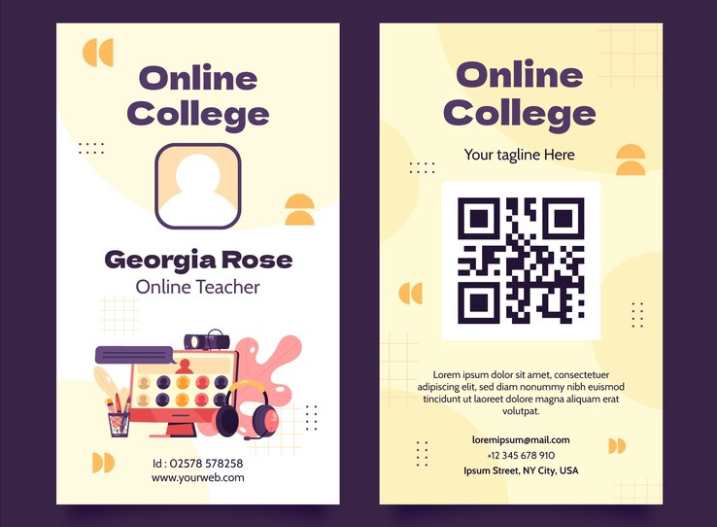
Government agencies and businesses can use QR codes on identification documents or access badges to verify individuals’ identities quickly and accurately, enhancing security protocols.
Integration with Smart Devices
QR codes can seamlessly integrate with smart devices to enhance connectivity and user experiences:
Smart Home Automation
Homeowners can use QR codes to configure smart home devices, such as thermostats, cameras, and lighting systems, simplifying setup processes and customization options.
Connected Appliances
QR codes on household appliances enable users to access user manuals, troubleshooting guides, and firmware updates directly from their smartphones, enhancing product support and user satisfaction.
Personalized Shopping Experiences
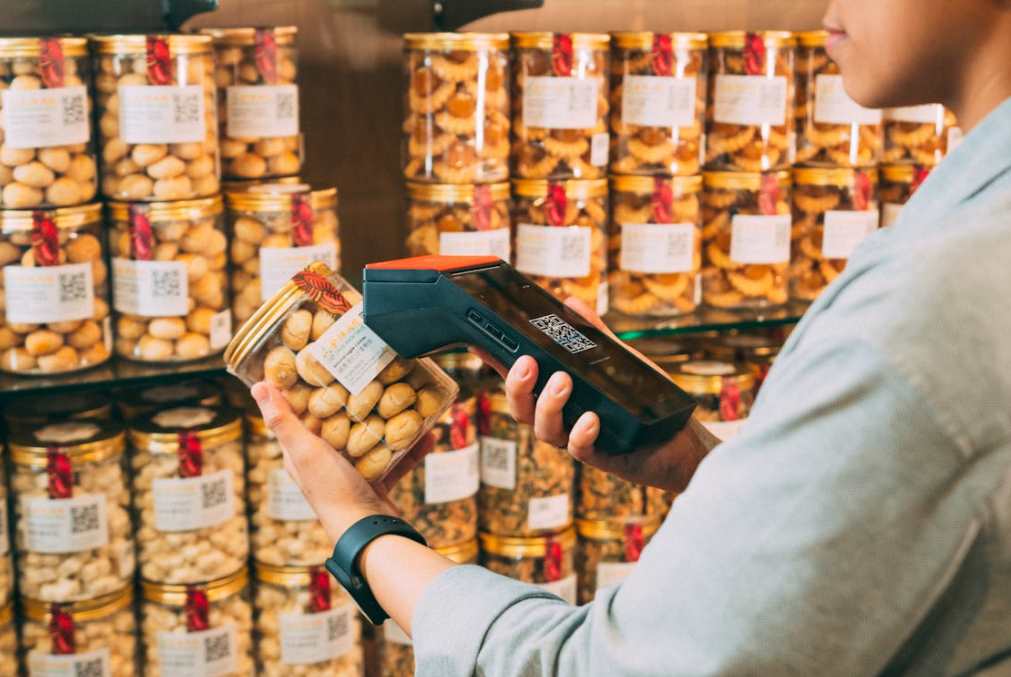
Retailers can leverage QR codes to offer personalized shopping experiences, such as virtual fitting rooms, product recommendations, and exclusive offers tailored to individual preferences.
A report by Juniper Research predicted that QR code payment users will exceed 2.2 billion by 2025, driven by the rise in eCommerce and the need for efficient, contactless payment solutions.
Environmental Sustainability
QR codes contribute to environmental sustainability efforts by reducing paper usage and promoting digital alternatives:
Digital Ticketing
QR codes on electronic tickets for events, transportation, or attractions eliminate the need for printed tickets, reducing paper waste and environmental impact.
Paperless Menus
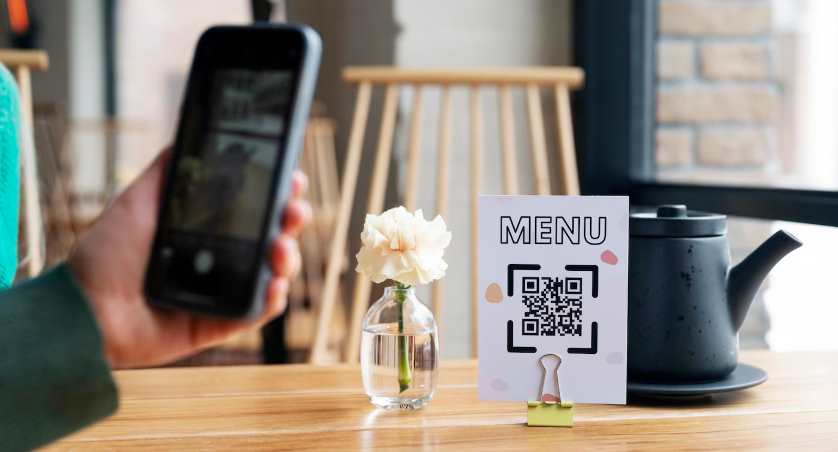
Restaurants can offer QR code-based digital menus instead of traditional paper menus, minimizing paper consumption and simplifying menu updates and customization.
Recycling Information
QR codes on product packaging or recycling bins can provide consumers with information on proper recycling practices, encouraging eco-friendly behaviors and waste reduction.
Frequently Asked Question
What is the best way to use QR codes?
The best way to use QR codes is to enhance user engagement and provide value through seamless digital interactions. Incorporate QR codes into marketing materials, product packaging, and business cards to offer instant access to websites, promotional offers, or detailed product information. This strategy not only boosts customer experience but also improves operational efficiency and data collection for businesses.
What are QR codes used for in everyday life?
In everyday life, QR codes are used for a variety of purposes, including making secure payments, accessing digital menus in restaurants, and quickly retrieving product information while shopping. They also play a crucial role in event ticketing, contactless transactions, and providing easy access to Wi-Fi networks, thus simplifying daily activities and enhancing convenience.
How do you use QR codes creatively?
Using QR codes creatively involves integrating them into unique applications like virtual tours for real estate, interactive learning materials in education, and dynamic art exhibitions. Businesses can also implement QR codes in loyalty programs, interactive posters, and personalized shopping experiences to engage customers and offer tailored content, thereby making interactions more immersive and impactful.
How secure are QR codes for payment transactions?
QR codes used for payment transactions employ encryption techniques to safeguard sensitive data, making them highly secure and resistant to fraud.
Can QR codes be customized with branding or design elements?
Yes, QR codes can be customized with logos, colors, and design elements to align with brand identity and enhance visual appeal.
Are QR codes compatible with all smartphones and devices?
Most modern smartphones and devices support QR code scanning, making them accessible to a wide range of users.
What are some potential privacy concerns associated with QR codes?
Privacy concerns may arise if QR codes lead to websites or apps that collect personal data without user consent. It’s essential for businesses to prioritize data protection and transparency.
How can businesses track the effectiveness of QR code campaigns?
Businesses can track QR code scans, conversions, and user engagement using analytics tools to measure the success and ROI of their campaigns.
Conclusion
In conclusion, QR codes offer endless possibilities for creativity, efficiency, and engagement across various industries and applications.
By exploring innovative ways to incorporate QR codes into marketing strategies, customer experiences, operational processes, educational initiatives, healthcare solutions, security protocols, smart devices, and environmental sustainability efforts, businesses and individuals can unlock new opportunities for growth, convenience, and sustainability.
